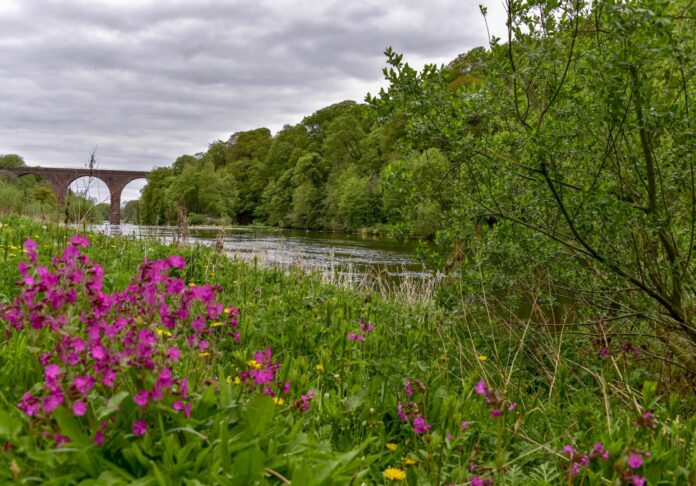A research project led by The University of Manchester is set to assess the potential of woodland restoration along England’s rivers and streams, as part of a £10.5 million programme to help trees and woodlands adapt to climate change and enable the UK to reach net zero greenhouse gas emissions.
Trees, woodlands and forests play a vital role removing greenhouse gases from the atmosphere and nurturing biodiversity. Thirteen per cent of the UK is covered by woodland, and the Government has pledged to plant millions of trees every year over the coming decades.
Creative Adaptive Solutions for Treescapes of Rivers (CASTOR) will be led by Dr Matthew Dennis from The University of Manchester, with partners from the Universities of Manchester, Cumbria, Leeds, Nottingham, Birmingham and Salford.
CASTOR identifies that the 150,000 miles of rivers and streams in England with potential for restoring woodland on their banks present a substantial opportunity for meeting the Government’s goal of 17% tree cover by 2050.
These biodiverse landscapes support many species including birds, invertebrates and mammals, and provide vital corridors for these species to travel along. They also provide a number of important ecosystem services including water filtration, flood prevention and carbon storage.
The project will explore and provide solutions for the challenges that restoration of riverside woodland may present. CASTOR will also identify unique opportunities through which restoring woodland located alongside rivers and waterways can promote natural and cultural heritage, and deliver nature recovery through providing wilder, better connected landscapes which build climate resilience
We will investigate how the recovery of these important environments can help promote lost natural processes, networks for nature, improved water quality, as well as increasing climate resilience by drawing down carbon and mitigating flood risk,” added Dr Dennis.
“The interdisciplinarity embedded within this project is truly exciting and progressive” added Dr Jenna C. Ashton from the research team at The University of Manchester. “Numerous methodologies come together in CASTOR that activate collaborative and diverse forms of knowledge production and storytelling. The project offers a significant model for research that brings together expertise and practices across the sciences, humanities, and arts for addressing environmental challenges.”
The five other projects in the Future of UK Treescapes Programme are led by the University of York, Manchester Metropolitan University, Loughborough University, the University of Birmingham and the UK Centre for Ecology and Hydrology.
“Our trees and forests are a precious resource and part of the solution to tackling the climate and ecological emergencies we face, and helping the UK reach net zero in 2050,” said Professor Sir Duncan Wingham, Executive Chair of NERC, part of UK Research and Innovation. “This research will increase our understanding of the huge societal, economic, cultural and environmental benefits of treescapes, and help us to identify how we can expand our woodlands, and ensure their resilience to pressures and stresses over decades and centuries.”







